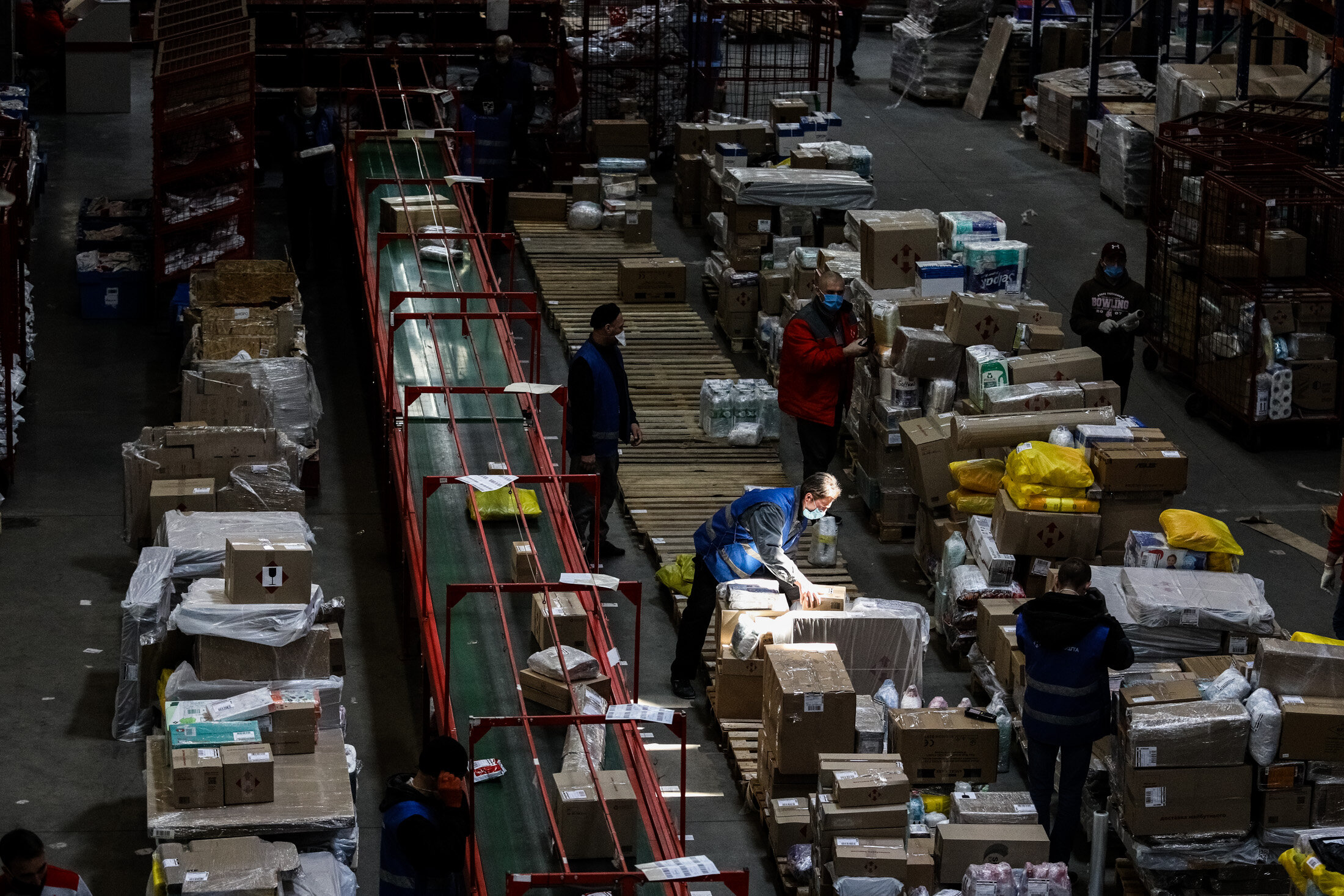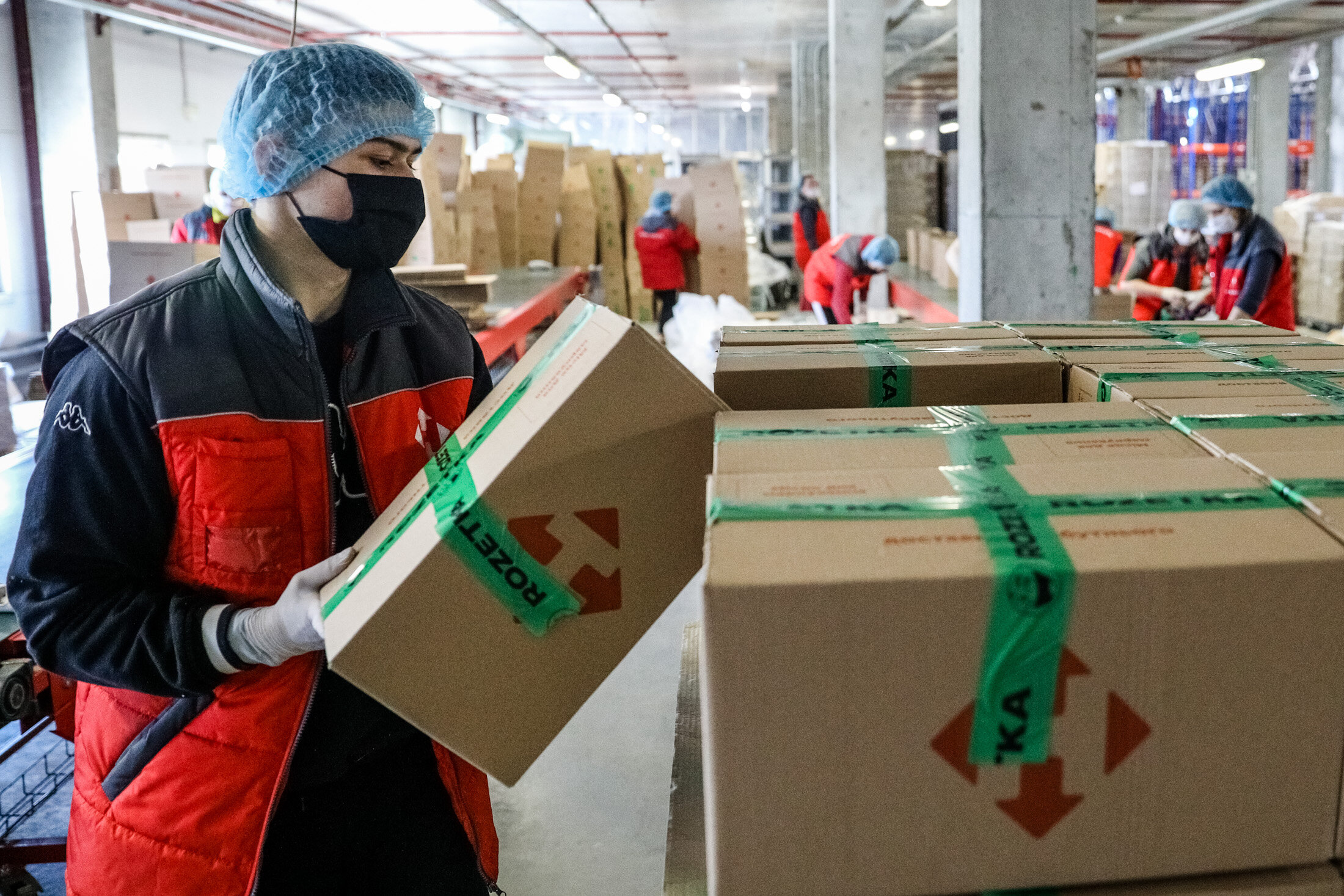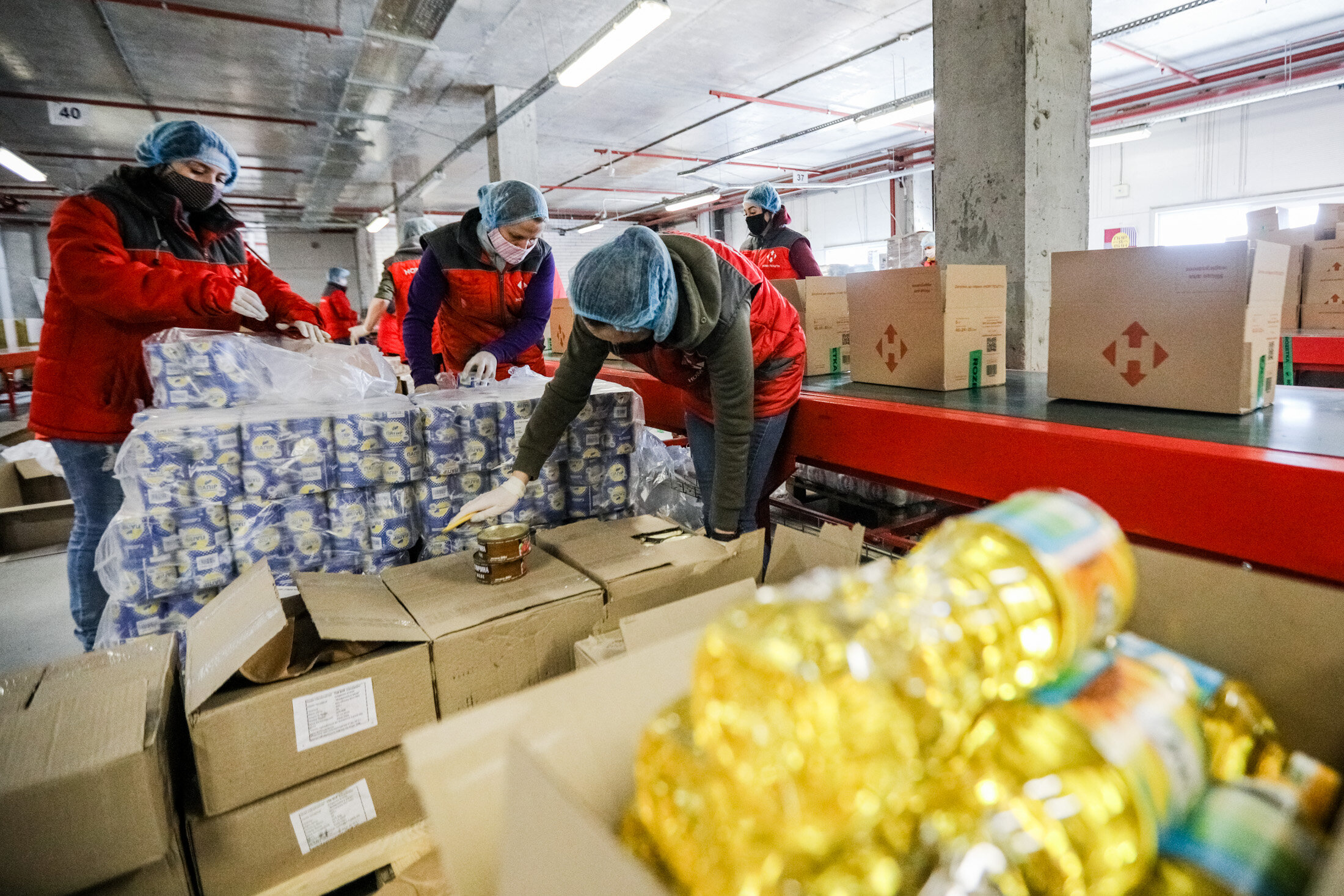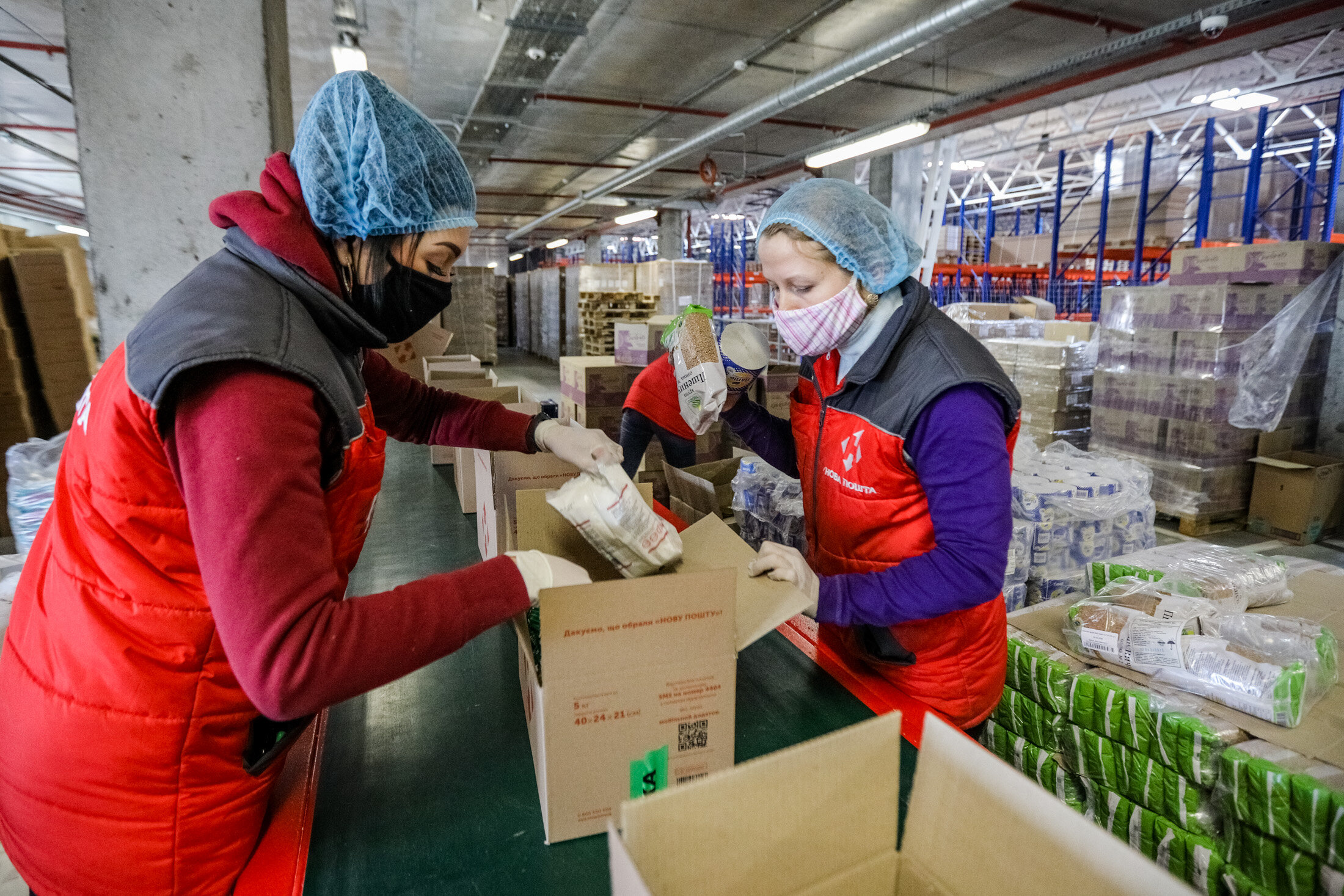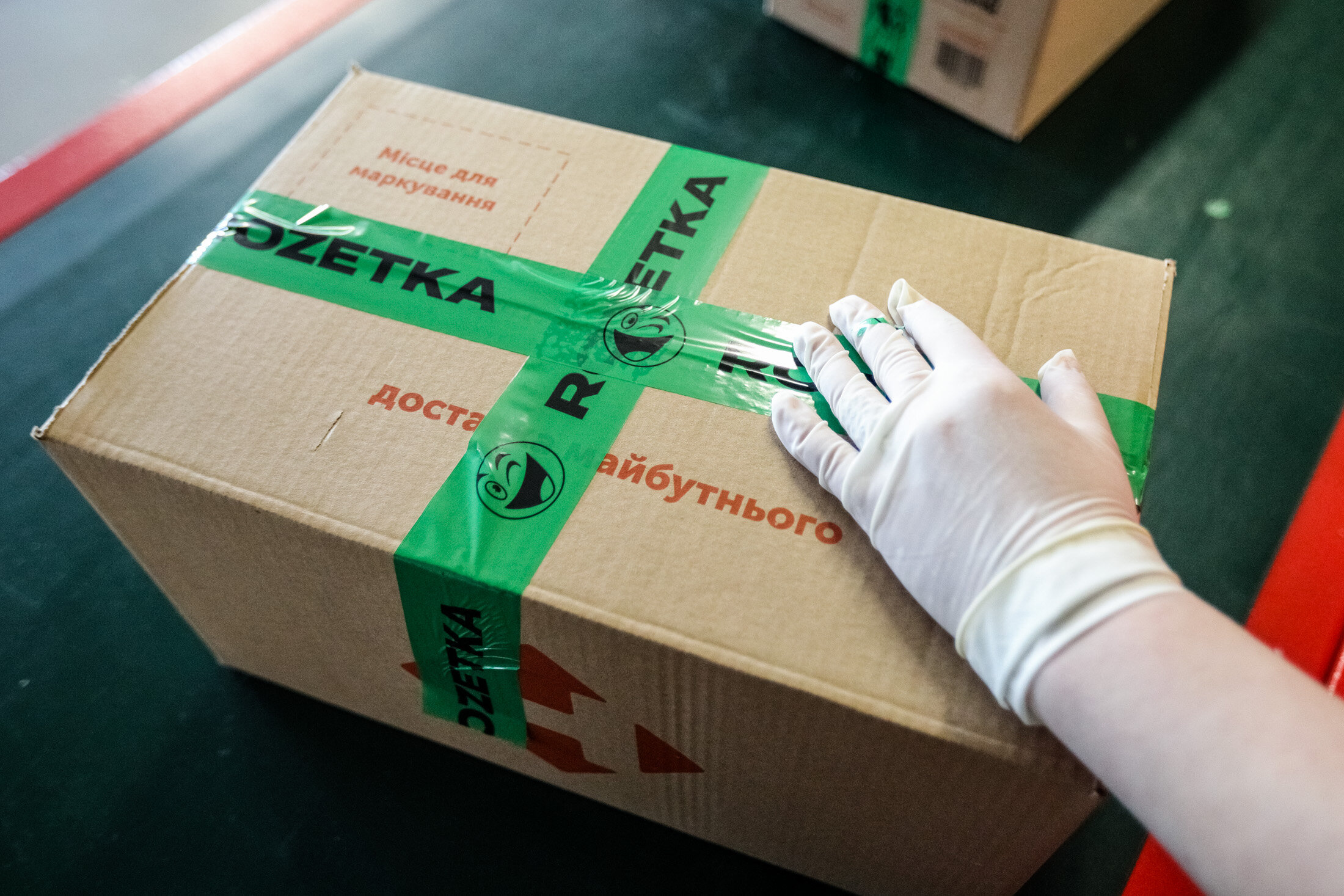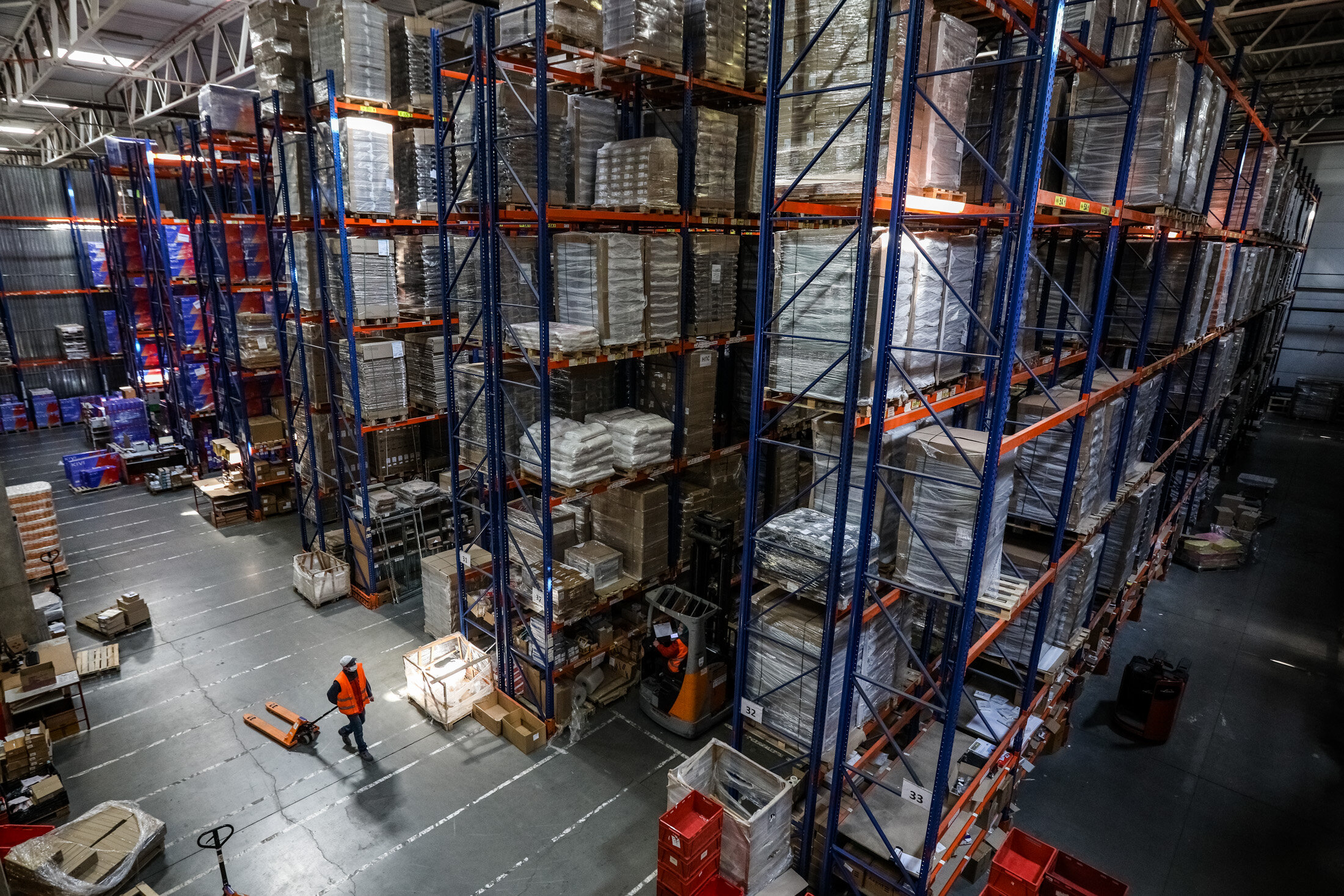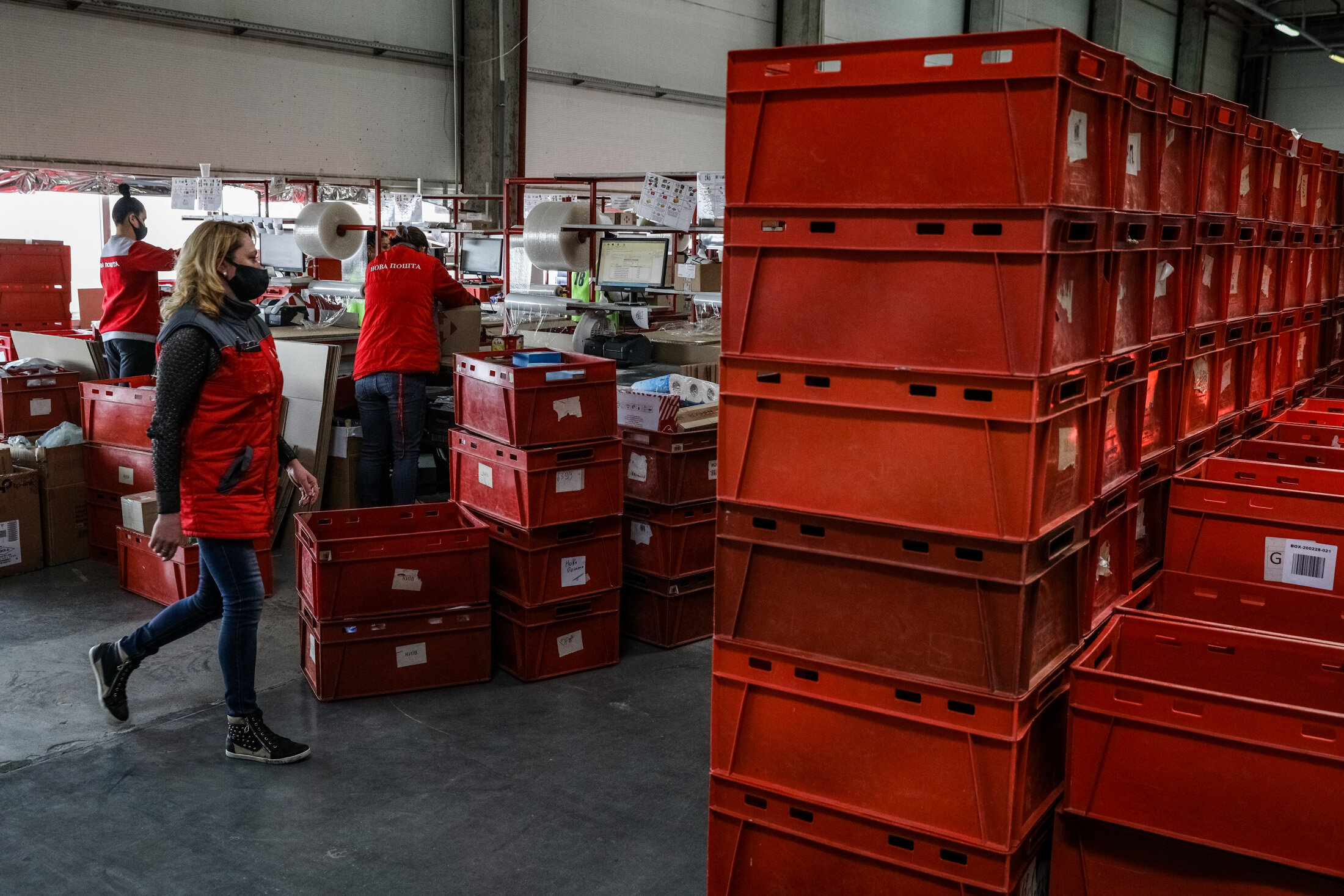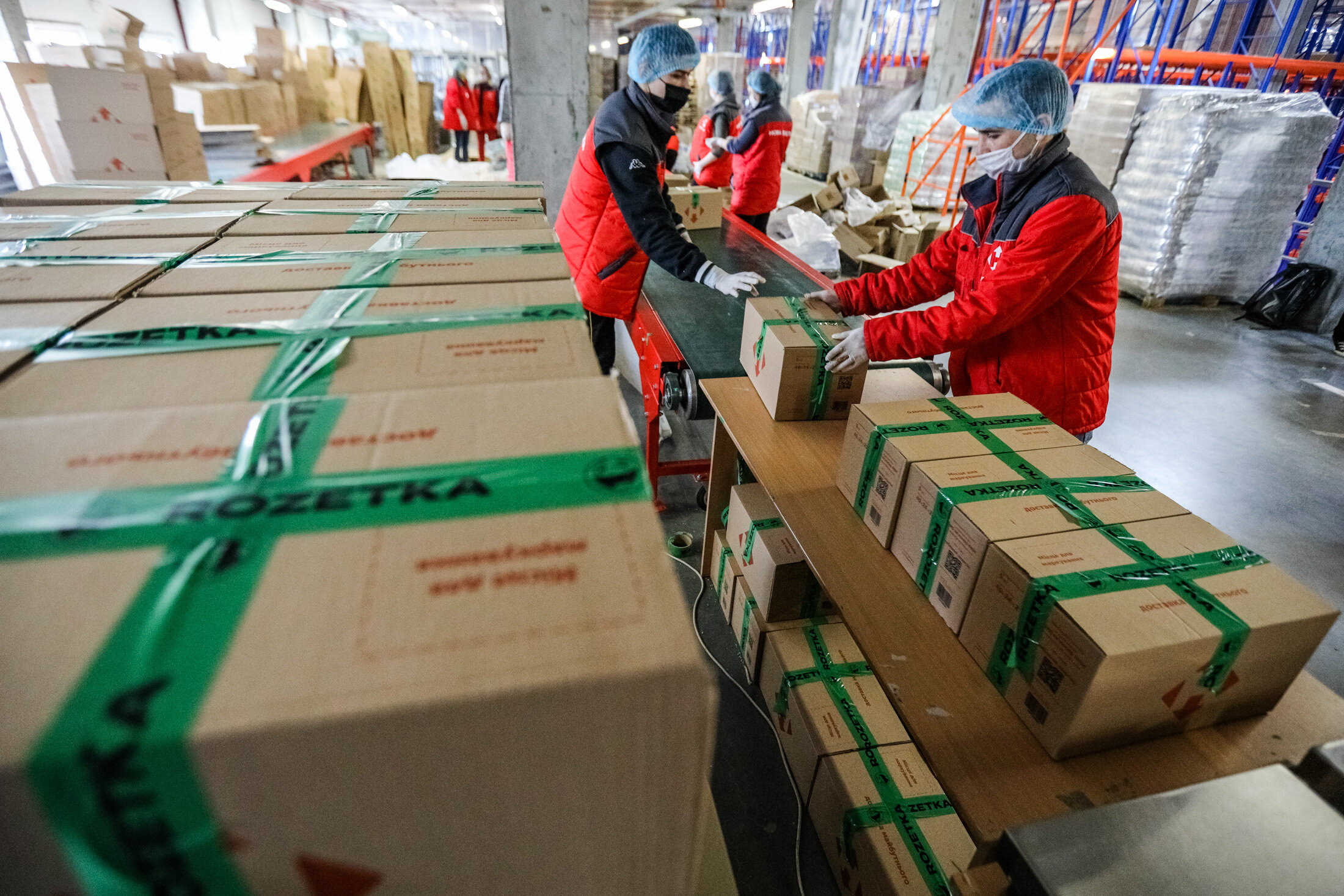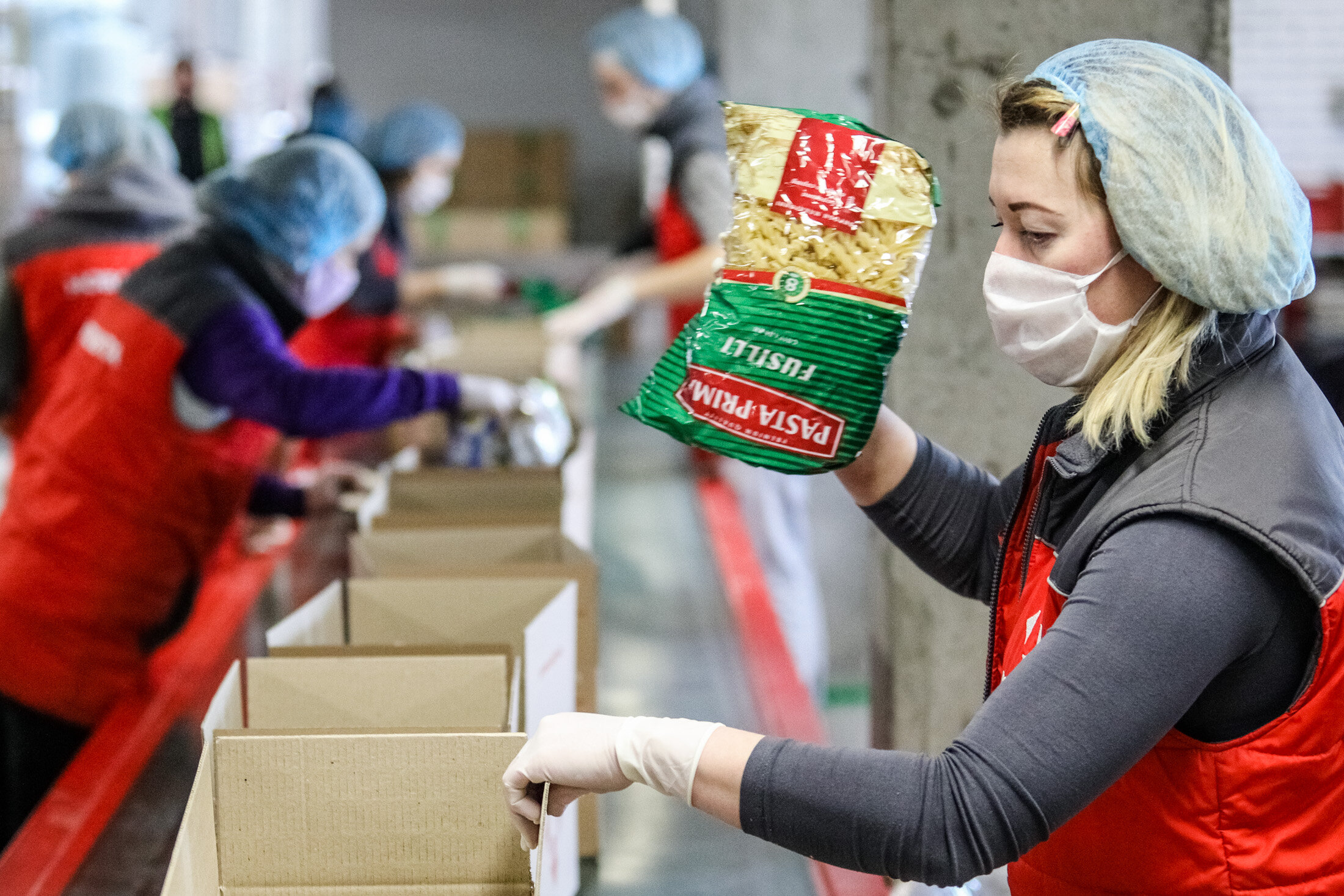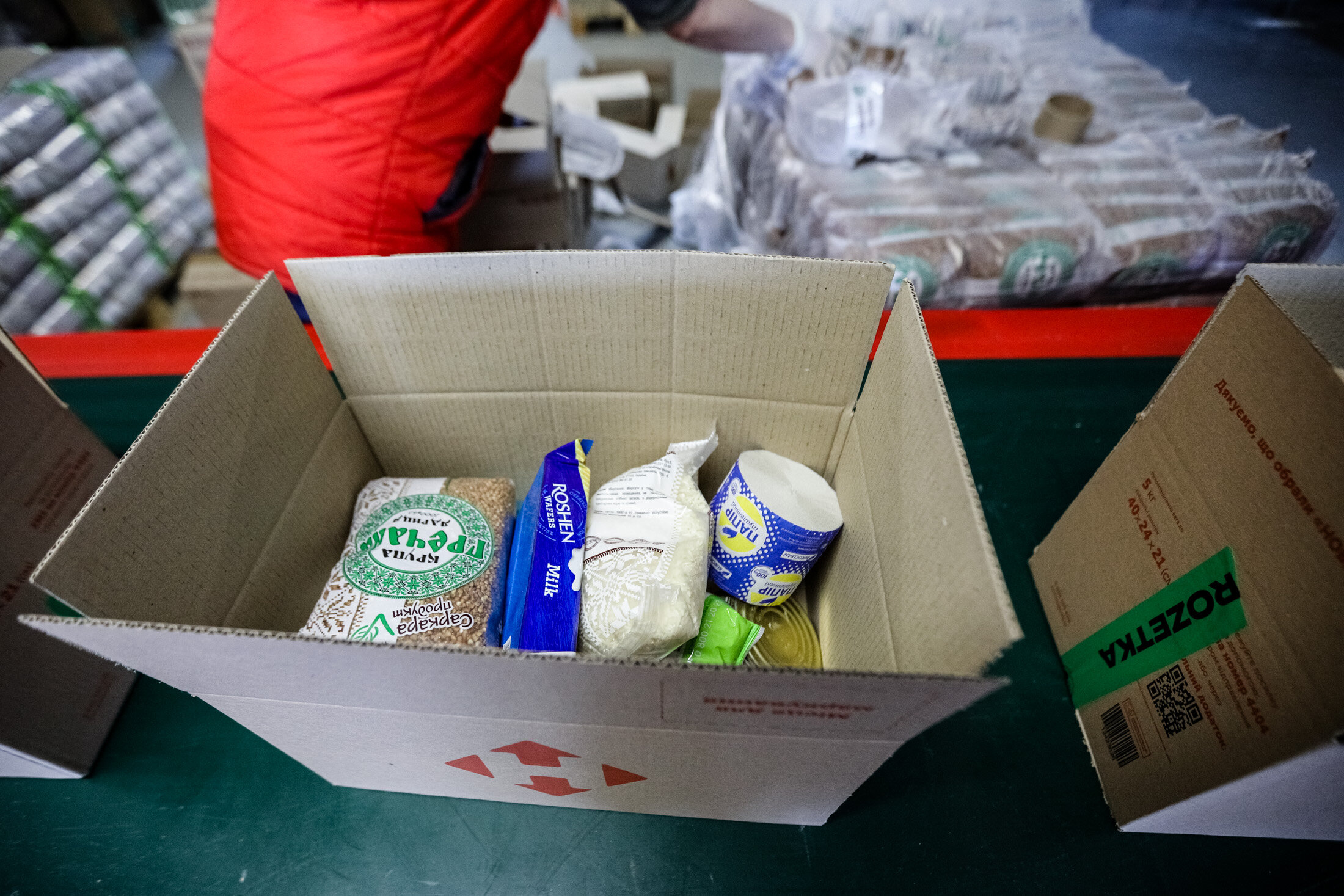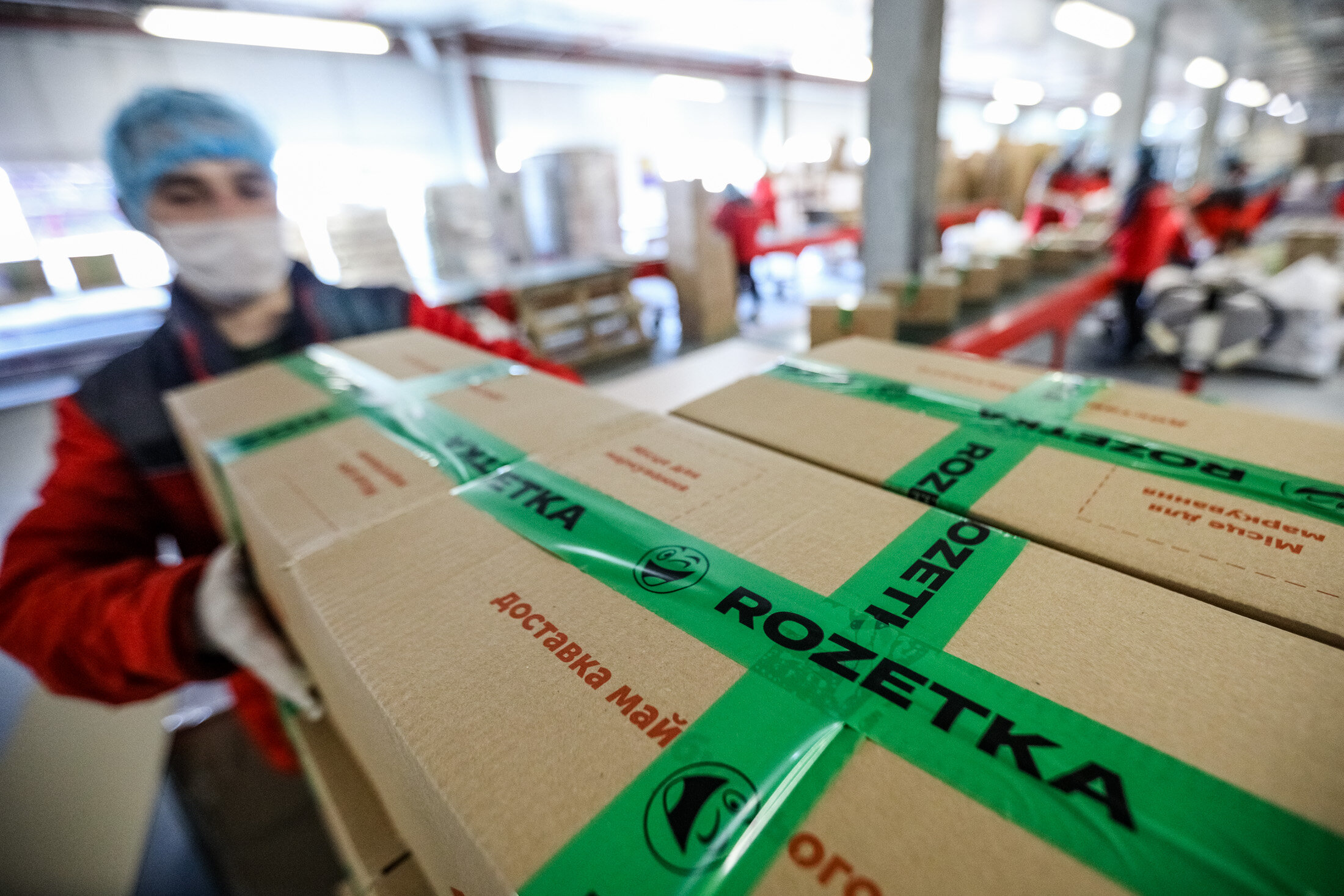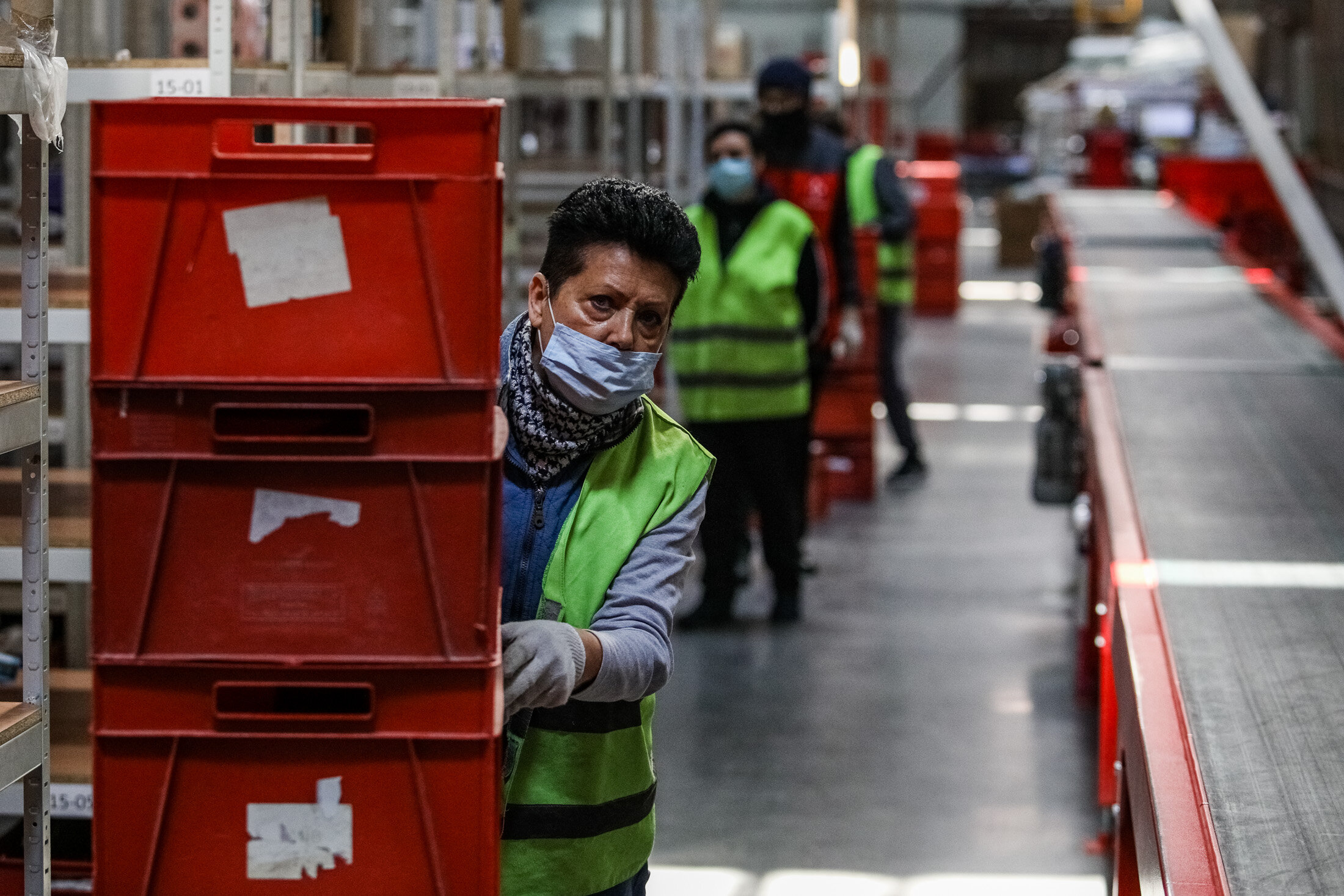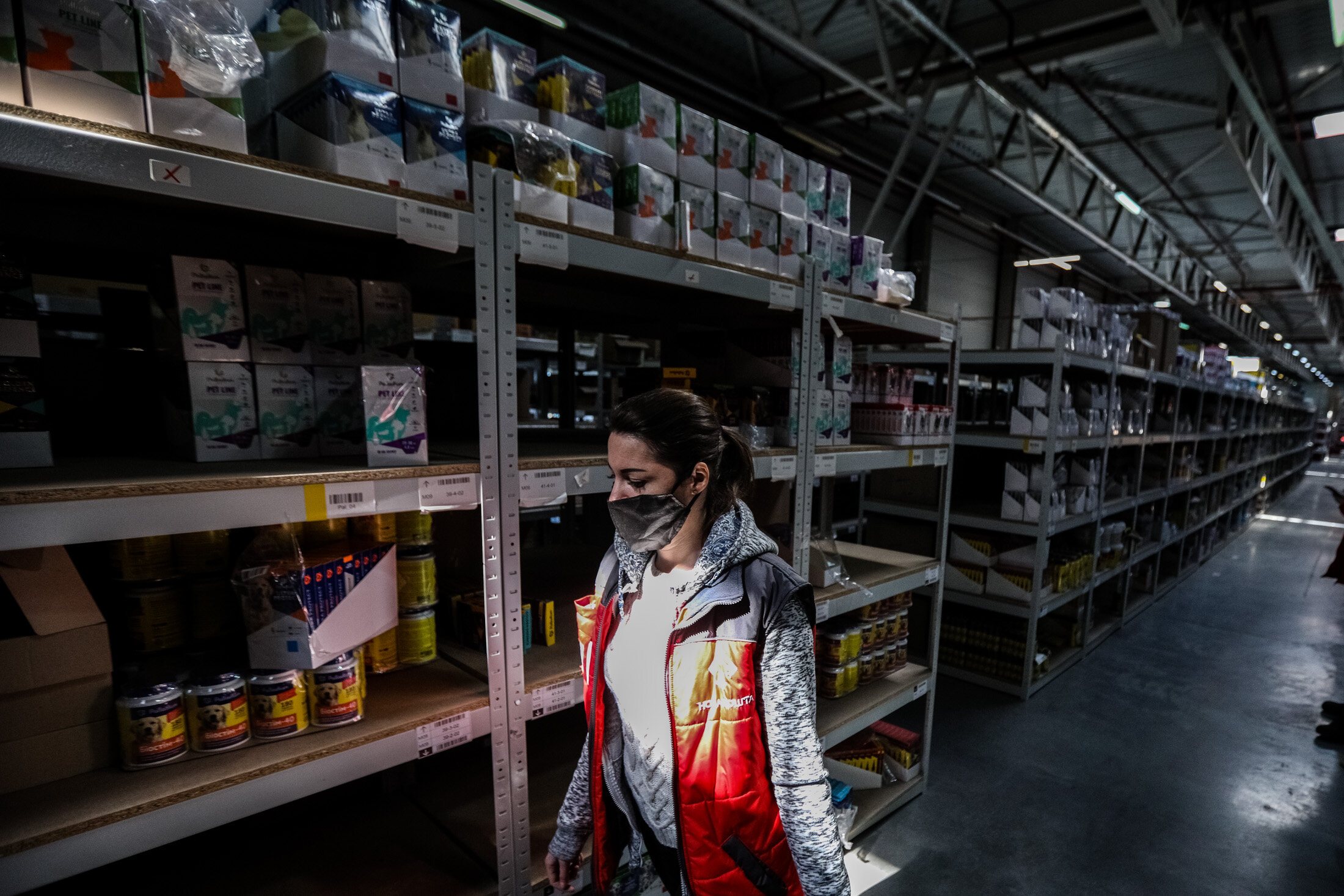As COVID-19 sweeps across Ukraine and the country stares down the twin barrels of a health crisis and medical supply shortages, businesses and Ukrainian citizens have stepped forward to help.
Despite estimates that businesses may see their cashflow halved in 2020 compared to the previous year, during the crisis scores of large companies have been donating hundreds of millions of hryvnias to provide hospitals with much-needed ventilators, diagnostic tools and protective equipment.
Others have arranged free transportation and communication services for medical workers, as well as critical food and medication deliveries to at-risk populations.
“Business cannot stand aside when the country is going through tough times: the economic crisis plus the threat of spreading the coronavirus epidemic,” Vyacheslav Klymov, co-founder of postal and logistics company Nova Poshta, said in a March 31 statement.
Here are some of the companies and wealthy Ukrainians that have launched coronavirus aid programs.
Businesses
Nova Poshta has allocated Hr 25 million ($920,000) for the purchase of equipment for Poltava hospitals. The company is also doing free deliveries of protective equipment to medical institutions, orphanages, the military and vulnerable populations, as well as hospitals across Ukraine.
Silpo has allocated Hr 100 million ($3.7 million) to buy equipment for hospitals. The supermarket chain also said it had paid Hr 13 million ($480,000) for 12 ventilators for hospitals in Kyiv, Vinnytsia, Kropyvnytsky, Chernivtsi and Ivano-Frankivsk.
UkrLandFarming, one of Ukraine’s largest agricultural holdings which belongs to tycoon Oleg Bakhmatyuk, allocated Hr 20 million ($750,000) to buy tools to fight coronavirus for hospitals and emergency medical centers across 19 regions. According to the National Bank of Ukraine, Bakhmatyuk owes the state $1 billion.
Nova Poshta, online retailer Rozetka and the Zhtteliub Foundation committed to more than 3,000 food deliveries to pensioners across Ukraine.
Aurora online store’s owner Lev Zhidenko announced that he gave Hr 7.7 million ($280,000) to buy medical equipment for Poltava hospitals.
Asters law firm provided Hr 1 million ($37,000) for medical equipment, protective equipment for doctors, and care packages for people in need and large families, who may be struggling with getting essential food supplies.
Members of the Poltava Business Association spent Hr 1.5 million ($55,360) on three ventilators for COVID-19 patients.
PrivatBank, Ukraine’s largest, state-owned bank, helped by spending 1 million euros on 28 ventilators for hospitals in Kyiv, Odesa and Lysychansk. A national program called Breathe! Together Against Coronavirus promises to gather the bank’s resources and client contributions to give equipment to regional hospitals. Among other aid, the bank spent over Hr 783,000 ($29,000) for a Zhytomyr hospital, and Hr 4.7 million ($170,000) for a hospital in Chernovtsy.
The biotech company Enzym and animal feed maker Kormotech said they would buy medical equipment worth Hr 4 million ($150,000) for Lviv hospitals.
Porsche Ukraine has given 10 Volkswagen Polo sedans to medical workers in Kyiv for temporary use, as well as supplying them with fuel.
Darnytsa, Ukraine’s leading pharmaceutical company, was joined by the Zagoriy Foundation to provide ventilators to a Kyiv hospital, as well as a testing machine that will aid in diagnosing coronavirus. They also donated express tests and committed to buying more ventilators.
Chernovetskyi Investment Group, a venture capital firm, allocated $500,000 for COVID-19 relief, which includes ventilators and protective equipment for hospitals in Ternopil, Kirovohrad, Zhytomyr and Kharkiv oblasts.
The WOG chain of gas stations is providing free fuel for ambulances during the quarantine, as well as donating fuel to Volyn regional doctors, allowing them to make tens of thousands more visits to critical patients during the quarantine.
Uber and Bolt taxi services are working with the Infrastructure Ministry of Ukraine to provide critical free transportation for medical workers.
UFuture, tycoon Vasyl Khmelnytsky’s investment firm behind industrial park UNIT.city, is providing ventilators to Kyiv Hospitals. Together with pharmaceutical Biopharma, they have donated Hr 12 million ($440,000).
The ATB supermarkets are participating in a project to deliver food to the most vulnerable populations in Kyiv, planning to distribute over a million packages to the elderly and people with disabilities.
Agricultural company MHP announced it is providing Hr 14 million ($520,000) to Cherkasy Oblast to help acquire necessary medical supplies.
The lifecell mobile carrier said it is providing mobile service and internet access to medical workers free of charge – thousands have already benefited.
Ferrexpo, the massive iron ore manufacturer belonging to oligarch Konstyantin Zhevago, gave $2.5 million to buy ventilators, coronavirus test systems, protective equipment for medical staff and other tools to help fight the epidemic.
NEQSOL Holding Group, the owners of Vodafone Ukraine, has donated more than $1 million to buy ventilators and medical equipment. Vodafone also provided Hr 5 million ($150,000) of its own budget for ventilators.
ELEKS, an IT company, said it spent Hr 600,000 ($22,000) on protective suits for doctors, as well as test systems.
The Epicenter K group of companies said it’s providing about Hr 40-50 million ($150,000 – $185,000) per month for ventilators and various other medical equipment, including 100,000 masks that were sent to a Kyiv clinical hospital and tools distributed throughout Khmelnytsky Oblast.
ICU, an investment firm, funded the delivery of resuscitation equipment and coronavirus tests for Kyiv hospitals.
Investment company Avalon and OKKO gas stations provided 20 ventilators for Lviv hospitals.
iDeals Solutions, the virtual data provider, gave Hr 1.5 million ($55,000) to the Kyiv Heart Institute. The money will be spent on equipment for treating patients with respiratory failure. It also bought a thousand protective suits for staff in multiple hospitals.
Taryan Group, the development company, bought two ventilators to be delivered to a hospital of their choosing later this month.
The agricultural giant Kernel gave Hr 85 million ($3.1 million) – Hr 55 million to the state fund for buying more rapid tests and Hr 30 million to buy medical devices and protective equipment for hospitals in Poltava and Kirovohrad.
TIS terminals, Neptune and P&O Maritime Ukraine provided Hr 46 million ($1.7 million), which will be spent on medical tools throughout the country, as well as protective equipment for doctors.
The Meest delivery company gave Hr 20 million ($74,000) to buy tools for fighting coronavirus in Lviv.
Digital consulting company SoftServe is providing Hr 10 million ($37,000) for the corporate charity fund Vidkryti Ochi for medical needs.
WePlay held a charity e-sports tournament in the video game “Dota 2.” The prize fund, plus the company’s contributions, provided almost $190,000 to help fight COVID-19.
Mastercard spent Hr 4 million ($147,600) in Ukraine, as part of its global effort to fight COVID-19. The contributions went to a charitable foundation, as well as to the provision of masks and antiseptics to Uklon taxi app drivers.
The Kharkiv IT Cluster is collecting millions of hryvnias for diagnostic tools and protective equipment together with the IT4Life tech outsourcing project. The Lviv IT Cluster is also working within Lviv Oblast, raising millions to buy tests and other equipment through the United for Health project.
Ajax Systems, which makes smart security systems, provided Hr 3 million for masks, protective suits and other equipment. Founder Aleksandr Konotopsky also donated his personal money to CEO Club Ukraine’s charity to buy ventilators.
LeoGaming, which processes payments for online games, gave Hr 2.8 million ($100,000) for ventilators. Employees collected more than Hr 100,000 ($3,690) for reusable protective hospital equipment.
Alfa Bank Ukraine provided Hr 2 million ($74,000) for a ventilator for the Amosov National Institute of Cardiovascular Surgery.
Philip Morris Ukraine donated Hr 10 million ($370,000) to the Health For All charity fund to help fight coronavirus.
LCF Law Group is buying medicine and protective supplies for the Institute of Pediatrics, Obstetrics and Gynecology of the National Academy of Medical Sciences, with the assistance of Spravedlyvist, an international charitable foundation.
Avellana Gold Company, a mining company, bought protective equipment and disinfectants for a Zakarpatska village hospital.
The Astarta agricultural holding will spend Hr 15 million ($406,000) to fight coronavirus via tests, protective equipment, disinfectants and other medical supplies for hospitals across different regions of Ukraine. It has also bought 15 ventilators and five oxygenation devices.
EPAM Systems, a digital platform provider, created an open source design for protective masks, which would allow a variety of manufacturers to more quickly close mask shortages. The company also allocated Hr 5.5 million to UNICEF to buy much needed supplies and Hr 1.5 million to local IT communities that are supporting medical workers.
The CEO Club Foundation raised over a quarter of a million dollars, which allowed it to acquire 15 ventilators that will arrive in mid-April.
The Tabletochki charity fund, which helps children with cancer, has been collecting funds from businesses to help Dnipro medical workers travel between home and work.
The Zhebrivsky Family Charity Fund, which is tied to pharmaceutical company Farmak, is providing Hr 10 million ($370,000) for the purchase of ventilators, rapid tests and protective equipment.
Wealthy Ukrainians
The foundation of oligarch Rinat Akhmetov announced it was contributing Hr 300 million ($11.1 million). Akhmetov acquired 300,000 rapid coronavirus tests and 200 ventilators for the Ukrainian health system. According to the fund’s public statements, the purchase contracts have been signed and the challenge remains to actually bring the acquired equipment into the country.
Oleksandr Yaroslavsky, head of DCH Group, contributed $2 million toward the first shipment of coronavirus PCR tests from China, which was largely financed by Chinese mogul Jack Ma. Yaroslavsky reportedly allocated another $13 million toward helping the Kharkiv region combat the illness through the provision of various medical supplies.
Victor Pinchuk and his companies Interpipe and EastOne said they contributed Hr 114 million — or nearly $4.2 million, including money to procure coronavirus tests. The companies also meet the urgent medical supply needs of Dnipro Oblast.
Former President Petro Poroshenko’s foundation and his confectionery manufacturer Roshen donated 10,000 protective suits to hospitals in Chernivtsi, Ternopil, Kyiv and Vinnytsia, with more planned for other regions of Ukraine. The foundation also provided resuscitation tools to Lviv. Poroshenko’s former adviser Yuriy Biryukov reported that the foundation spent Hr 92 million ($3.14 million).
Lawmaker and business tycoon Vadym Novinsky bought 100,000 PCR tests from South Korea to expand Ukraine’s diagnostic capacity. Novinsky’s foundation also sent ventilators, protective suits and masks to medical workers in Kherson Oblast. The foundation further pledged to assist at-risk veteran populations.
Chas diy, created by businessman Igor Voronov, reported buying medical equipment for hospitals, with a combined worth of Hr 22 million ($810,000). These include syringe pumps, aspirators, monitors and protective equipment.
Serhiy Tigipko‘s foundation said it allocated Hr 7 million ($260,000) to help local and regional medical institutions acquire drugs, medical tools and protective equipment. The lion’s share went to Chernihiv’s city hospital.
Soccer club Dynamo Kyiv, owned by Ihor Surkis, pledged to provide advanced diagnostic tools for a Kyiv clinical hospital.
